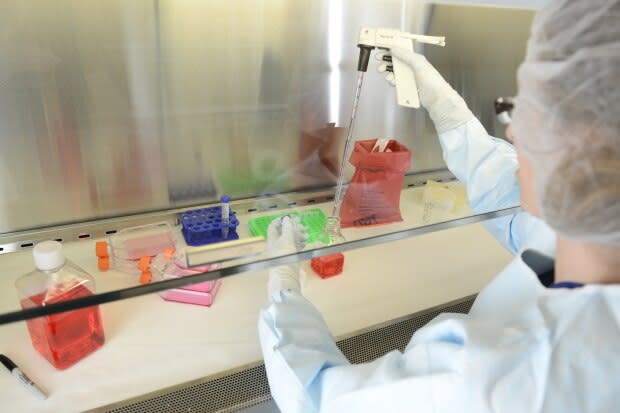U of S scientists granted funds that will allow African swine fever vaccines to be tested onsite
The disease infecting and killing pigs in Africa, Europe and Asia will eventually spread to North America, say researchers at the University of Saskatchewan's Vaccine and Infectious Disease Organization-International Vaccine Centre (VIDO-InterVac).
That means new funding from the federal government that will allow its lab in Saskatoon to test vaccines for African swine fever is not just for some distant problem.
"It's now affecting several countries in Asia and has made its way into Europe, even in Belgium and the Czech Republic," said Volker Gerdts, VIDO-Intervac's director and CEO.
Before the funding announcement last week, the lab had sent more than 30 vaccines to Winnipeg to be tested.

Economic repercussions
ASF has infected over 60 per cent of Asian swine, and they are starting to die.
For countries that export pork products, like Canada, ASF could have have severe economic repercussions.

"As soon as you have an outbreak in your country your ability to trade with other countries is lost," said Gerdts. "We're exporting almost 70 per cent of our pork to other countries."
Vaccine research is conducted in one of the centre's high-level labs where scientists are usually clad in protective suits and hoods. ASF can't be transmitted to humans so the scientists working on the vaccines only need to wear hair nets, gowns and gloves.
The vaccines VIDO-Intervac sent to Winnipeg in the past were eventually tested on pigs. Gerdt says that the lab on the U of S campus will be able to test vaccines on the animals in about a year.
Canada-wide effort
The centre just hosted an international conference, organized by the federal government. The intent of the conference was to share ASF research and co-ordinate an international effort to eradicate the fever.
"The government of Canada is taking a leadership role to protect our pork industry, economy and Canadians' jobs," said Marie-Claude Bibeau, minister of Agriculture and Agri-Food in a release announcing the research.
The conference also served as a planning session to determine a response to a potential outbreak.


